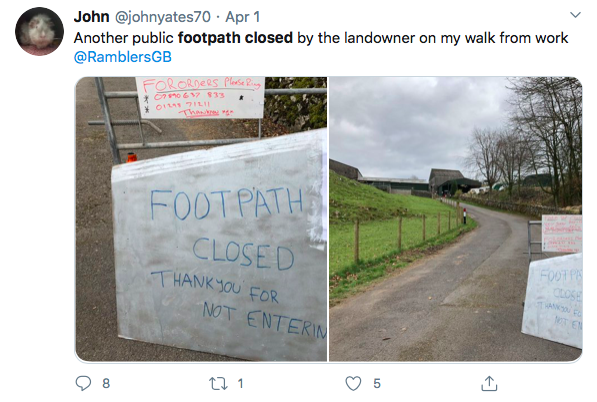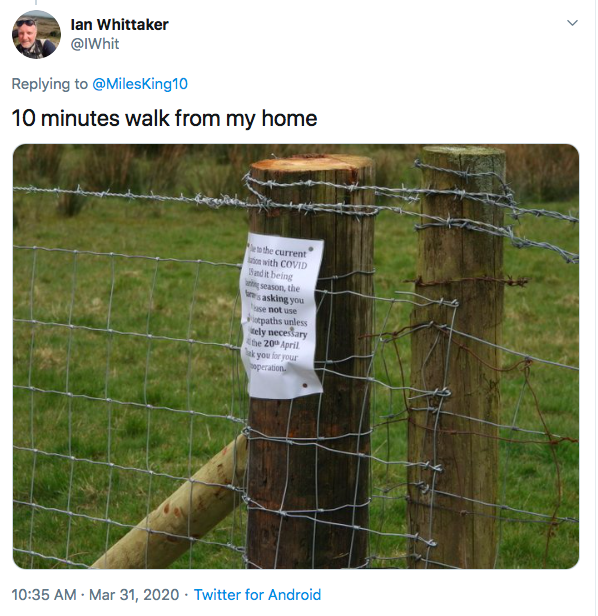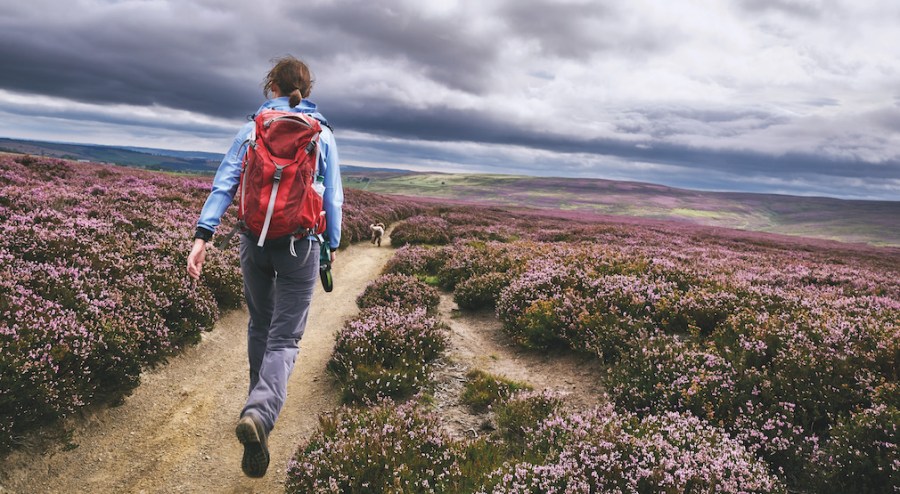Some landowners have interpreted lockdown as a license to block public rights of way or put up signs declaring them shut. What should you do if you come across these ‘unofficial’ closures?
On March 22, the day before the UK government introduced ‘lockdown’ measures, a picture of a trailer sprawled across the entrance of a Lake Bala car park went viral on social media. Somebody had used white paint to daube a message across its side: “Go home idiots,” it said.
It was one of the first notable examples of a growing trend in ‘lockdown Britain’. Walkers are increasingly encountering instances of locals and landowners in the countryside taking matters into their own hands and unofficially ‘closing’ parts of the countryside, including many public rights of way.
Under the current conditions of the lockdown, exercising once a day in the local vicinity is still allowed. So what should you do if you come across a path ‘closure’ of this sort near you during your daily walk?
Signs of the times
Across the UK, ‘unofficial’ notices like these, often put up by locals or landowners, are an increasingly common sight:


There have also been instances of paths being physically blocked with padlocks or other impediments.
Despite asking visitors to the park in general to stay away, the Peak District national park authority spoke up to warn residents against closing or blocking footpaths, which “in one case…closed a footpath used by a key worker to get to work.” The Yorkshire Dales made a similar request, describing strident messages put up in some areas as “unhelpful”.
Meanwhile, the Ramblers warned that path closures “can in some cases limit opportunities for people to exercise locally or enjoy essential amenities.”
What does the law say?
Firstly, it’s important to state that the law varies in different parts of the UK.
England
In England, there is no power under the Countryside and Rights of Way Act (England and Wales) (CROW) or the Highways Act 1980 for landowners to close or obstruct a public right of way or use of access land. Coronavirus hasn’t so far changed that.
However, the Department for Environment, Food and Rural Affairs (DEFRA) has stipulated that landowners can take the following measures:
- Tying gates open if it is safe to do so, so that walkers do not need to touch the gate.
- Temporarily displaying polite notices that encourage users to respect local residents and workers by following social distancing guidelines and consider using alternative routes that do not pass through gardens, farmyards or schools.
- Offering a permissive alternative route around gardens and farmyards only where it is safe to do so (permission must be obtained from relevant landowners and steps must be taken to make sure the route is safe for users and livestock) provided that the original right of way is maintained.
However, none of the above are legally enforceable. In other words, you’re well within your rights to ignore any ‘path closed’ signs in England – but you may, of course, choose to respect the landowner’s request if you think it seems reasonable and justified.
Scotland
In Scotland, the right of responsible open access set out under the Land Reform (Scotland) Act 2003 remains in force.
However, the Scottish Government has put extra emphasis on the responsible proviso, and put out at a statement saying that in the context of the COVID-19 emergency this means:
- Stay local – do not travel in your car to take exercise.
- Stay at least 2 metres away from other people and try to avoid busy times on popular paths or places.
- Follow all reasonable requests and signs to avoid particular areas, such as farmyards, fields with pregnant or young livestock, and other busy working areas.
- Keep your dog under close control.
- Try to avoid touching surfaces and if possible plan a route that does not require you to open gates.
BUT – the situation is different in Wales
However, in Wales, the legislation is stricter than in England and Scotland, and has resulted in many popular walking locations and paths being officially closed.
So if you’re rambling in Wales and you spot a footpath closure, it’s much more likely to have been instigated officially. Walking on these closed paths is now an offence.
Find about more about the extent of official closures in particular areas by following these links:
However, just as in England, you may also encounter paths where locals and landowners have put up unofficial ‘closed’ notices. Again, these do not carry any legal weight under the CROW Act (which also covers Wales), but you may decide to respect them.







